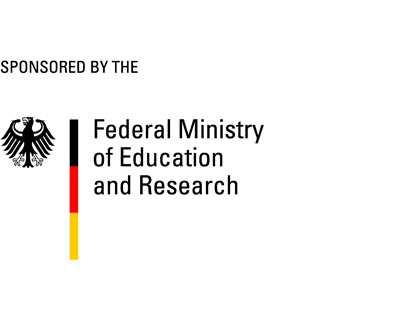AEQUIPA
Physical activity is a key contributor to healthy ageing. In spite of the widely known beneficial effects, only a small proportion of older adults are physically active. AEQUIPA is a regional prevention research network comprising six universities, two research institutes and the health economy organisation of the Bremen-Oldenburg metropolitan region. The network's core themes are promoting physical activity among older adults (65+).
AEQUIPA Vorstellung
Gesundes Quartier
Zukunftsvision
AEQUIPA Hajo Zeeb
Tilman Brand zu AEQUIPA/RTC
Sonia Lippke zu AEQUIPA/PROMOTE
Jochen Meyer zu AEQUIPA/TECHNOLOGY
Fit im Nordwesten - Strategien für mehr Bewegung im Alltag von Älteren
Aktive Mobilität im Alter fördern - Ein Aktionswochenende im Reallabor Ritterhude
News
Webinar Meet-the-Data: Nationwide Cancer Registry Data Set
- Created by Dr. Teresa Alberts
- Research Data Infrastructures and Data ScienceResearch dataEvent
In the webinar series Meet-the-Data@ Gesundheitsforschung by NFDI4Health & BIH QUEST, leading research institutes present their valuable datasets from various fields of health sciences.
In this session, the audience is introduced to the collection of data on diagnosis, treatment, and disease course from cancer registries across Germany:
The nationwide network of cancer registries of the German federal states is responsible for the continuous collection of information on diagnosis, treatment, and disease course. The registries submit data to the Center for Cancer Registry Data (ZfKD) of the Robert Koch Institute (RKI) once a year, in accordance with the Federal Cancer Registry Data Act (BKRG). The ZfKD compiles the data into a nationwide dataset and makes it available for scientific research projects upon application.
Currently, data can be requested from two different datasets: the epidemiological dataset (earliest available year of diagnosis: 1999), and the clinical dataset (from diagnosis year 2020). The epidemiological dataset contains basic demographic information as well as information on the primary diagnosis and vital status. The clinical dataset additionally includes more detailed data on diagnosis as well as information on cancer treatment and disease progression.
Data can be requested as individual case data or in aggregated form using the appropriate application forms on the ZfKD website. Applicants must justify the scope of the requested data and provide information on the intended data processing environment. Each application is reviewed by the ZfKD together with its scientific advisory committee.
Date: 03 September 2025 | 16:00 to 16:45
Location: Online (Zoom)
------------
Participation is free: Register now
Further information: Meet-the-Data @Gesundheitsforschung
Organisers: NFDI4Health & BIH QUEST Centre @Charité

Events
Webinar Meet-the-Data: Nationwide Cancer Registry Data Set
- Created by Dr. Teresa Alberts
- Research Data Infrastructures and Data ScienceResearch dataEvent
In the webinar series Meet-the-Data@ Gesundheitsforschung by NFDI4Health & BIH QUEST, leading research institutes present their valuable datasets from various fields of health sciences.
In this session, the audience is introduced to the collection of data on diagnosis, treatment, and disease course from cancer registries across Germany:
The nationwide network of cancer registries of the German federal states is responsible for the continuous collection of information on diagnosis, treatment, and disease course. The registries submit data to the Center for Cancer Registry Data (ZfKD) of the Robert Koch Institute (RKI) once a year, in accordance with the Federal Cancer Registry Data Act (BKRG). The ZfKD compiles the data into a nationwide dataset and makes it available for scientific research projects upon application.
Currently, data can be requested from two different datasets: the epidemiological dataset (earliest available year of diagnosis: 1999), and the clinical dataset (from diagnosis year 2020). The epidemiological dataset contains basic demographic information as well as information on the primary diagnosis and vital status. The clinical dataset additionally includes more detailed data on diagnosis as well as information on cancer treatment and disease progression.
Data can be requested as individual case data or in aggregated form using the appropriate application forms on the ZfKD website. Applicants must justify the scope of the requested data and provide information on the intended data processing environment. Each application is reviewed by the ZfKD together with its scientific advisory committee.
Date: 03 September 2025 | 16:00 to 16:45
Location: Online (Zoom)
------------
Participation is free: Register now
Further information: Meet-the-Data @Gesundheitsforschung
Organisers: NFDI4Health & BIH QUEST Centre @Charité


